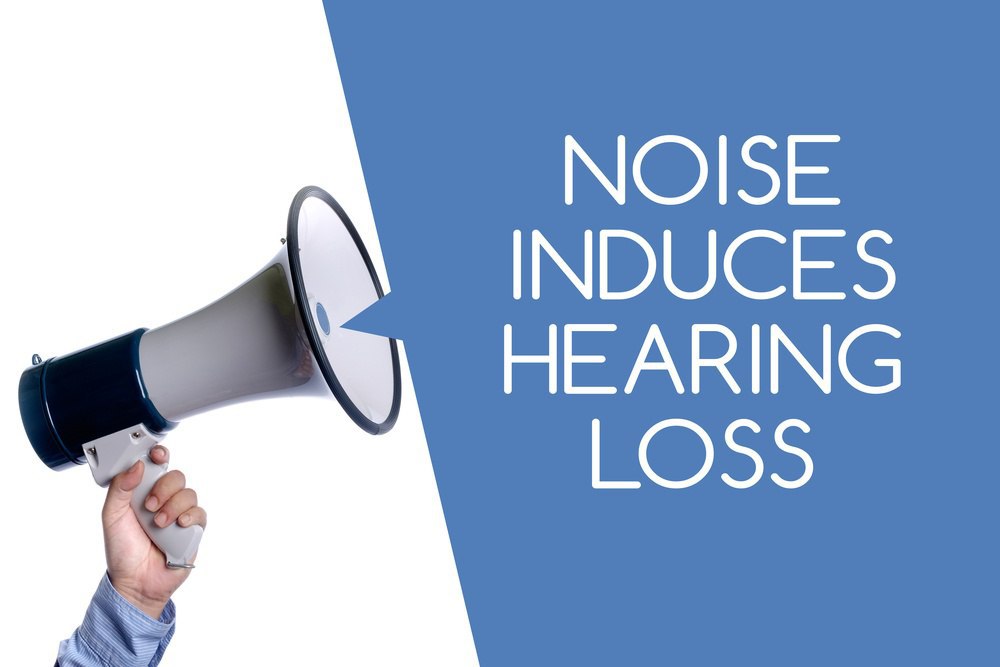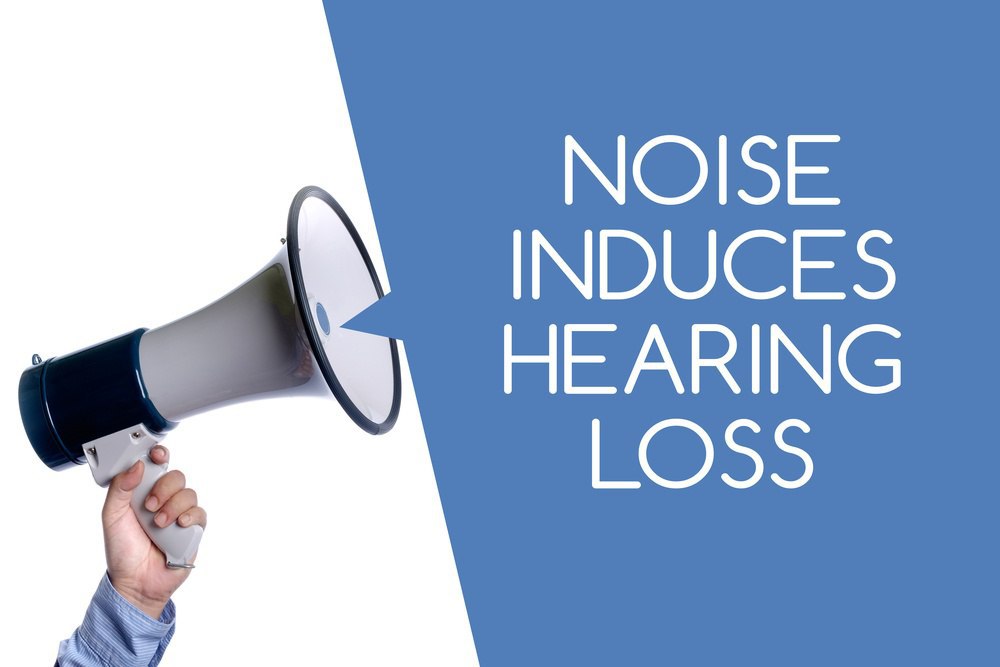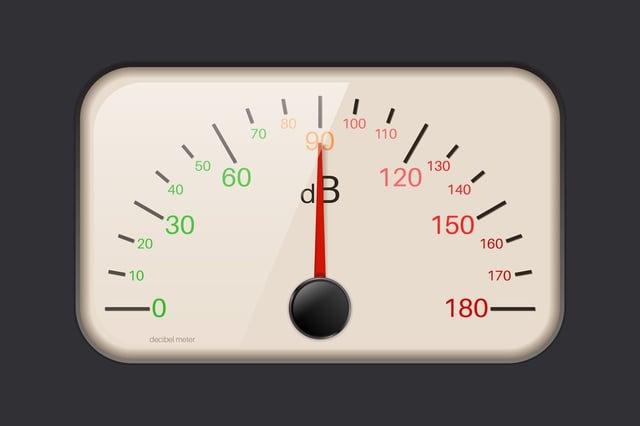What is Noise Induced Hearing Loss (NIHL)? (Causes and Effects)
June 27th, 2017 | 4 min. read
By Chuck Leider


It’s perfectly natural to hear all manner of sounds in your normal living environment each and every day. For example, you hear sounds from the radio, television, conversations, and traffic during the day and night. What’s not natural is when these sounds are too loud. Even if only heard for a brief time, loud noises can damage delicate components in your ears and can be the cause of noise-induced hearing loss (NIHL). Below, we look at NIHL, its causes, effects, and at what you can do if you think you’ve been affected.
Causes of Noise-Induced Hearing Loss
Noise-induced hearing loss can come on immediately after you hear a loud noise or it can take a while to appear. It can also either be permanent or temporary, affecting one or both ears. Whether it begins when you're a young child or as an older person, hearing loss through exposure to loud and harmful noise can happen at any age. It’s thought that at least six percent of U.S. adults under the age of 70 have some degree of hearing loss due to loud noise exposure.
Decibels and Noise-Related Hearing Loss
The loudness of sound is measured in decibels. For example, take a look at this chart which reflects decibel levels in various noises according to the National Institute on Deafness and Other Communication Disorders (NIDCD).
|
Sound |
Decibel Level |
|
Refrigerator humming |
40 |
|
Normal conversation |
60 |
|
City traffic noise |
85 |
|
Motorcycle noise |
95 |
|
MP3 player |
105 |
|
Sires |
120 |
|
Firecrackers |
150 |
|
Firearms |
150 |
Noise sources that can cause noise-induced hearing loss, including small firearms, motorcycles, and firecrackers, are between 120 and 150 decibels. It must be noted that there are effects of loud noises on hearing. Repeated or long exposure to sounds at or above 85 decibels can damage your hearing. Sounds under 75 decibels are unlikely to cause hearing loss. Generally speaking, it’s good practice to avoid noises that last too long, are too loud and too close.
Sounds that cause noise induced hearing loss can include many everyday activities that can bring the condition on, including:
-
Attending loud concerts
-
Listening to music at a high volume through headphones or earbuds
-
Playing in a band
-
Rising motorcycles
-
Being around lawnmowers
-
Shooting guns
-
Letting off fireworks and more
-
Being near an explosion
-
Occupational noise such as being in a woodworking shop
Effects of Noise-Induced Hearing Loss
Being exposed to loud noises causes damage to you auditory (hearing) nerve as well as damage to the hair cells. Hair cells are sensitive sensory cells in your inner ear that convert sound into electrical signals that travel to your brain. When hair cells are damaged, they never grow back.
A particularly loud sound can result in an immediate hearing loss. This could be permanent. This type of hearing loss can be accompanied by tinnitus - a roaring, ringing or buzzing in your head or ears. This may subside over time. Tinnitus or hearing loss may affect one or both your ears and tinnitus can either be continuous or can occur from time to time.
Your hair cells can also get damaged when you’re exposed to continuous loud sounds over time. Again, this can result in tinnitus and hearing loss. This process happens more gradually than if you've been exposed to a one-time impulse sound.
Can Noise-Related Hearing Loss Be Prevented?
As you may imagine, NIHL is preventable. It’s prudent to educate yourself and your children about the hazards of noise and about how to protect your ears on a day-to-day basis. For example:
-
Be alert to dangerous noise levels in your environment.
-
Stay away from loud sounds.
-
Turn the sound down on mp3 players and stereos. Just listening to your mp3 player on maximum volume for 15 minutes a day can cause permanent hearing loss.
-
Wear earplugs or hearing protectors when you’re involved in loud activities.
-
Be aware of the levels of noise that can be damaging (those at or above 85 decibels).
-
Protect your children’s ears.
-
Be alert to dangerous noise in your environments.
-
Share your knowledge of hearing hazards with those around you.
-
If you suspect you may have hearing loss, speak with your Houston ENT doctor about getting a hearing test.
Exposure to continuous and impulse sounds may only cause temporary hearing loss. If this happens, your short-term hearing loss is known as a temporary threshold shift. This tends to disappear between 16 and 48 hours after loud noise exposure. You can prevent any type of noise-related hearing loss by using hearing protectors like earmuffs or earplugs.
Is There a Genetic Factor Related to Noise-Induced Hearing Loss?
Everyone exposed to loud noises can be affected by NIHL. However, your genetics can place you at a higher risk. We all inherit genes from our parents. These carry the information that form who we are. It’s true that some of us carry inherited genes that make us more susceptible to developing noise-induced hearing loss. Scientists are currently working on pinpointing these genes.
How is Noise-Induced Hearing Loss Treated?
There is some exciting research coming out from The National Institute on Deafness and Other Communication Disorders. The Institute researches the causes, diagnosis, prevention, and treatment of noise induce hearing loss.
Researchers supported by the body have managed to identify some of the genes that are crucial to hearing and ear development. They’ve even found a gene that can regrow hair cells in guinea pigs. Interestingly, the animals treated actually regained some of the hearing they’d lost.
If you’re suffering from NIHL and are worried about wearing a hearing aid to treat the condition, don’t be. Hearing aid technology is continuously evolving and becoming constantly more advanced. In fact, modern hearing aids are tiny high-tech computers. The progress that’s been made in this areas has allowed for improved sound reproduction and no one but you ever needs to know you’re wearing one!
There are four main types of hearing aid on the market today:![]()
-
In the ear hearing aids
-
Behind the ear hearing aids
-
In the canal hearing aids
-
Entirely in the canal hearing aids
Each of these different categories contains the same major components:
-
Loudspeaker
-
Microphone
-
Amplifier
-
Computer
There’s no need to worry about the stigma of wearing a hearing aid either. Modern hearing aids are so unobtrusive that no one needs to see that you're wearing one.
Getting sound professional advice from our Houston ENT doctors is paramount when you’re looking to choose the right hearing aid for you. Speaking to the right experts helps you choose the model that best matches your needs. With a good hearing aid, you will be able to hear sounds and speech you haven’t been able to for a long time.
For help and advice, call us here at Houston ENT & Allergy at 281-649-7000 or complete our online form, to take the next steps towards hearing clearly again.
Topics:
